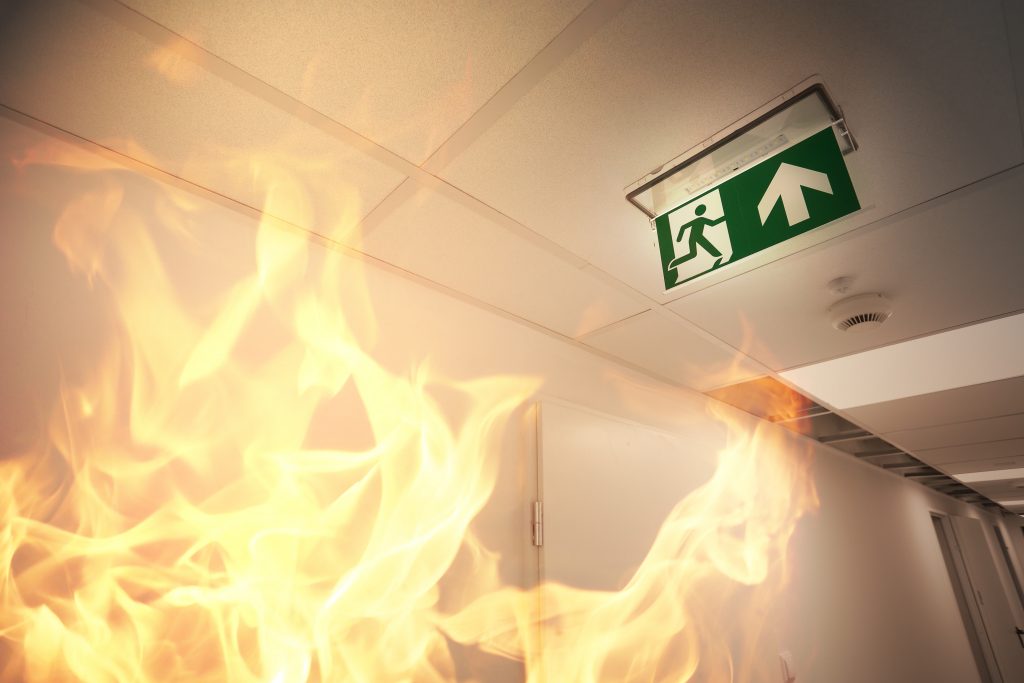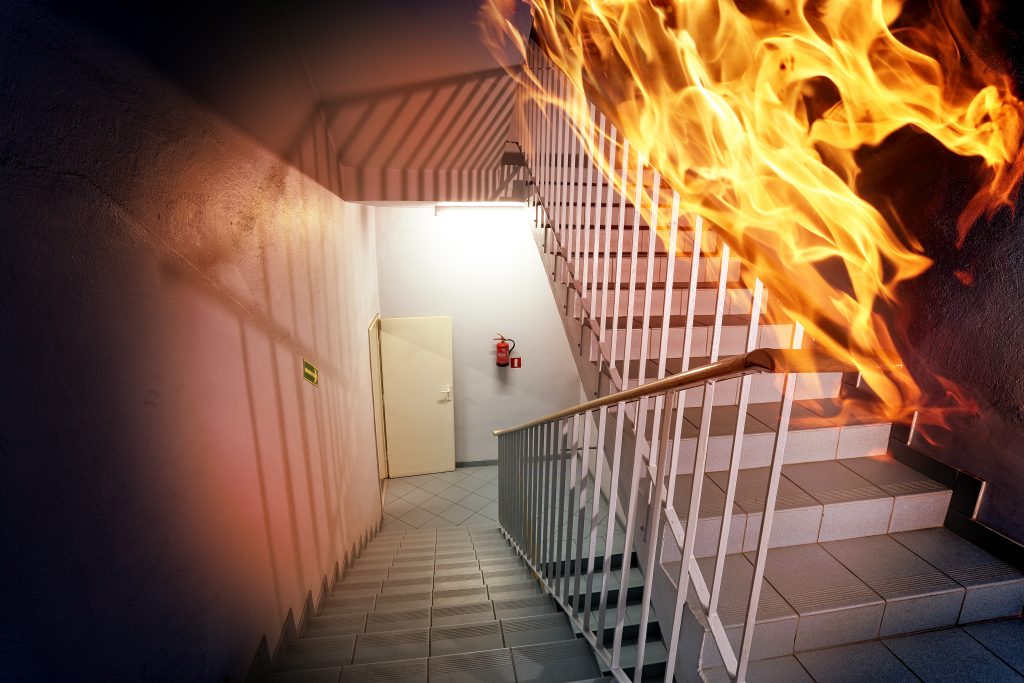Fire Safety in Hotels

If you run or manage a hotel you have a responsibility to ensure your fire safety is up to date. This is more than a responsibility to the safety of your guests, it is a legal requirement. The law is very clear, and the penalties range from a fine through to actual imprisonment. Basically, this is not an optional guideline or something you can pay lip service to by having the occasional fire drill for the staff, it is a serious responsibility, and it is a part of the continued good practice for the running of your business.
Occasionally there is a misunderstanding about size, when it comes to accommodation and yes, of course, the actual requirements of fire safety vary depending on the kind of hotel facility involved. The fire alarms and other warning systems, for example, are going to be considerably more sophisticated in a busy conference centre and spa, than they are in a small boutique hotel. The number of staff will affect the need for trained fire wardens and how your evacuation policy works. Even location can make a difference; a central London hotel will need to take a very different approach to fire than a small boutique one on the Brighton promenade. The underlying requirements however are all the same. You must have an appropriate fire safety policy and the associated practices in place. All the rest is implementation, because the bottom line is not about the size of your business it is about the responsibility to your staff and guests.
That said, clearly the hotel, bed and breakfast and any other accommodation business are different to other working environments. The fact that guests are there overnight or to attend a conference or other types of event, will impact on your fire safety processes. As well as the unusual nature of the business, regular shift changes and the unreliable and unknown nature of the visitors, add a further dimension to the already complex problem. Your fire risk assessment will cover the main policies, so the following are a few suggestions, hints, tips and things you may want to consider as well.
Fire Safety Tips for Hotels

- Are all your staff trained to the right level? Legally you must train everyone who works for you to an appropriate level of fire safety. This could mean a quick online course in a smaller hotel or it could be a full series of face to face sessions for a larger concern. Whatever your needs though, maybe you could consider increasing the number of Fire Marshal trained workers you have. The cost of this upgrade will be minimal or indeed nothing extra at all. The reason we suggest extra training is that, as a rule of thumb, the more in depth the training they have the more confident people are, and the more confident they are the more likely it is that people will take the initiative. Initiative could save lives and property.
- Initiative and ownership of fire safety should be part of your practice. Designated Fire Marshals have very specific responsibilities for some of your fire safety practice but if everyone in the team sees fire safety as their responsibility as well, it could prove a valuable tool. The best way to fight fire is to prevent it happening in the first place. If all the team see it as their duty to spot and deal with potential hazards, you are adding another layer of protection to your fire safety.
- Hotels are for travellers, so have you considered language barriers? The sign on the back of your room doors may be in a few commonly used languages but in the middle of a fire emergency guests will be scared and prone to making mistakes. Some simple measures like the team knowing a few select phrases such as ‘There may be a fire please go to the car park’ in a handful of languages may be all a guest needs to understand where they need to be.
- Guests come and go and some of them will have mobility issues. Usually you will have this catered for in advance of them arriving at the hotel. What about the ones with temporary problems though? A guest with a temporary injury may not have thought to let you know, so it’s worth having a policy in place to pass information on at the shift change so the team are aware of a guest who may have a problem if there is an issue.
- Keep on top of your safety practice because it is for your benefit as well as that of others. When things are busy in summer or during the party season, it is easy for fire safety to drop off the radar. The proof of the pudding is in the eating, so make sure you keep up your practice no matter how busy things get. If a fire does break out, it is not going to wait for a convenient time so your fire safety procedures must be robust no matter when they are needed. Your weekly checks such as fire extinguisher maintenance, your fire walks and so on should all continue regardless of how busy you are. If you have an incident and you didn’t maintain your fire safety, you could be in some real hot water.
- Be vigilant and watch out for the dangerous things that guests will do. Ask anyone who has been in hospitality for a while and they will tell you stories of guests who smoke in rooms by disabling the smoke detectors or guests who bring their own heaters. I even heard of one guest who had used a portable barbecue balanced on a window ledge outside an open window. A little vigilance for the smell of cigarettes in a corridor could well prevent an incident.
As a final thought… The staff and guests all deserve to be safe when they are on your premises and those two words ‘your premises’ are probably the final piece in excellent fire safety procedure. Know the law and make it fit for purpose around your own premises. There may well be no one size fits all solution to fire safety but it must still work for everyone.
Learn more about our online fire training courses.
Learn more about our face-to-face fire safety training for hotels courses.
